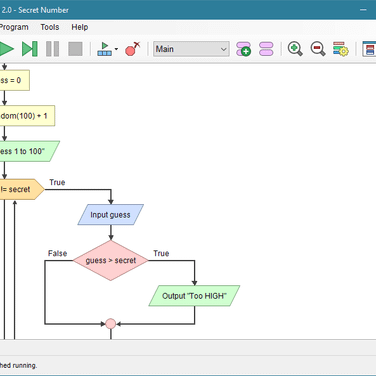Other Operating Systems
RAPTOR is written in a combination of C# and A# (a port of Ada to the .NET Framework) and is only supported on Windows. We have experimented with MonoUbuntu. We were able to get RAPTOR running on Ubuntu with some features removed. Here's a zip with all of the files in case you want to try it. The most frequent question I get is if there is a Mac version. We don't have time to develop one, but I've heard that Wine may let you run the Windows version on a Mac.

Link de Descarga: http://www.flowgorithm.org/download/index.htm. If you compare a flowchart to a movie, then an algorithm is the story of that movie. In other words, an algorithm is the core of a flowchart. Actually, in the field of computer programming, there are many differences between algorithm and flowchart regarding various aspects, such as the accuracy, the way they display, and the way people feel about them. » flowgorithm download free. It was originally introduced to Mac users in Mac OS 9. A Windows version has been available since the introduction of iTunes 7.
Flowgorithm.exe is the programs's main file and it takes circa 1.80 MB (1886208 bytes) on disk. Flowgorithm installs the following the executables on your PC, taking about 1.80 MB (1886208 bytes) on disk. Flowgorithm.exe (1.80 MB) The current page applies to Flowgorithm version 1.8.0 only. You can find below info on other releases of.

About Modes
Flowgorithm 1.7
Did you know RAPTOR has modes? By default, you start in Novice mode. Novice mode has a single global namespace for variables. Intermediate mode allows you to create procedures that have their own scope (introducing the notion of parameter passing and supports recursion). Object-Oriented mode is new (in the Summer 2009 version)

How To Use Flowgorithm
RAPTOR is Free!
Flowgorithm Examples
RAPTOR is freely distributed as a service to the CS education community. RAPTOR was originally developed by and for the US Air Force Academy, Department of Computer Science, but its use has spread and RAPTOR is now used for CS education in over 30 countries on at least 4 continents. Martin Carlisle is the primary maintainer, and is a professor at Carnegie Mellon University.